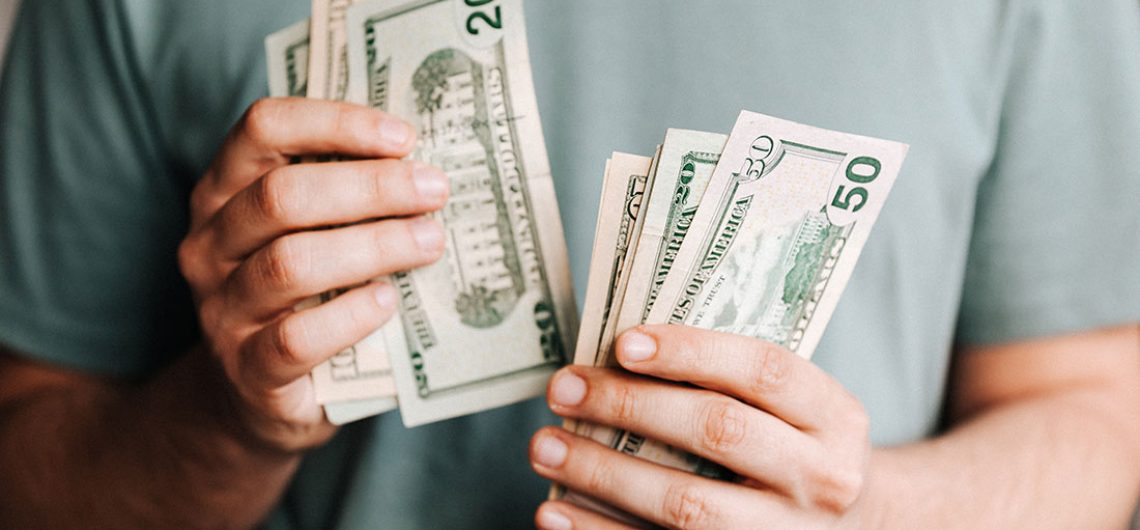When embarking on your Kilimanjaro climb, it’s crucial to have the necessary money with you in Tanzania. There won’t be any last-minute opportunities to obtain cash just before the tipping ceremony, so you must carry the money with you during the trek. It is best to bring US dollars for tipping your mountain crew, as they are widely accepted in Tanzania. Depending on the number of days you are spending on the mountain and the number of people in your group, bring the recommended Kilimanjaro tips along with roughly $200 in emergency cash. Card payment is generally accepted anywhere. In towns, there are local ATMs that I could use to get some local cash. The US is not Tanzania. With the exception of the porters on Kilimanjaro and private guides, you don’t need to tip much.
See how much money you should tip your Kilimanjaro crew
Remember that the US dollar notes must be untorn, unmarked, and printed after 2006, as Tanzanian banks won’t accept older notes. Check every bill carefully before your departure. While you can withdraw cash from ATMs in Arusha or Moshi, it may not be feasible during the climb unless you plan to visit these towns. It is more convenient to have the money prepared in a little plastic bag, which you can then store at the bottom of your backpack until needed.
The tipping ceremony is a significant moment where you can show your appreciation to the hardworking and supportive mountain crew. This crew consists of guides, porters, and a cook, each playing a crucial role in ensuring a successful climb. The lead guide not only leads you up the mountain but also provides encouragement and ensures your safety. Other guides look after your health and share their knowledge and stories. The cook prepares nourishing meals to sustain you during the trek.
Finally, the porters exhibit remarkable strength and endurance as they carry all the team’s equipment up and down the mountain. While trekkers carry lighter loads, the porters shoulder around 20 kg and tackle the rocky terrain with smiles and good humor. Their invaluable support contributes greatly to the success and enjoyment of your Kilimanjaro adventure. Show your gratitude to the crew by being well-prepared and ready to reward their hard work and dedication during the tipping ceremony.
When trekking on Kilimanjaro, it is essential to carry enough cash to cover any additional expenses and emergencies that may arise during your journey. While most tour operators will include the major costs in their package, such as park fees, guide, and accommodation, it is wise to have some cash on hand for the following:
- Tipping: It is customary to tip your guides, porters, and other staff after a successful climb. Tipping is a way to show appreciation for their hard work and dedication. The recommended tipping amount varies, but as a general guideline, budget around $200 to $300 for tips per hiker for a standard 6 to 8-day climb.
- Extra Services or Rentals: If you decide to rent any gear or equipment on the mountain, or if you opt for additional services like portable toilets or extra porter assistance, you’ll need cash for these services.
- Personal Expenses: While meals and accommodation are typically included in the tour package, you may want to purchase snacks, beverages, or souvenirs during the trek.
- Emergency Situations: It’s always a good idea to have some cash on hand in case of unexpected situations, such as needing to hire a rescue team or seeking medical attention.
As for the exact amount, it is advisable to carry a combination of US dollars and Tanzanian shillings. US dollars are widely accepted in most places, especially in larger towns like Moshi or Arusha. Tanzanian shillings may be handy for small purchases at local markets or during village visits.
Keep in mind that while there are ATMs in Moshi and Arusha, it’s better to have cash on hand before starting the trek, as there may be limited access to ATMs on the mountain.
Ultimately, the amount of cash you carry will depend on your personal preferences and the specific services you may want to avail during the climb. Always ensure you have enough cash to cover any unforeseen situations and have a safe and enjoyable journey on Kilimanjaro.
![]()


Comments